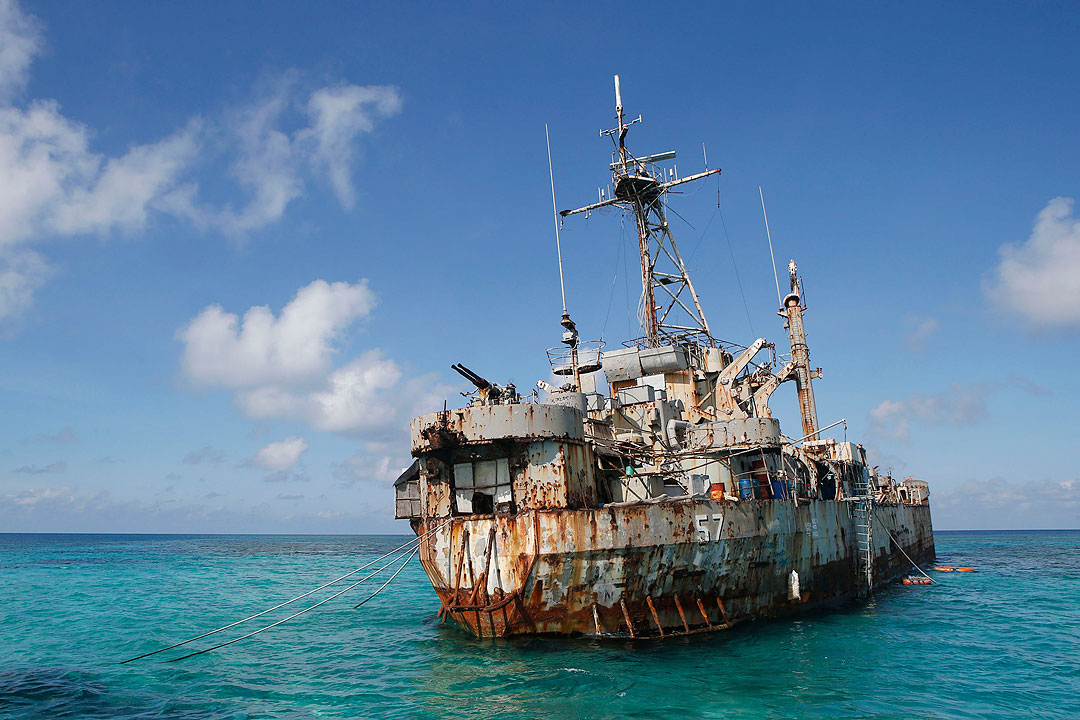Analysts urge China not to manipulate talks with Manila on sea dispute

By John Victor D. Ordoñez, Reporter
CHINA should avoid a domineering stance in negotiations with the Philippines to ease sea tensions, security analysts said on Thursday, after Beijing told Manila not to complicate the situation.
“It shows the behavior of China as domineering and manipulative in the two-way process of resolving the South China Sea conundrum,” Chester B. Cabalza, founding president of Manila-based International Development and Security Cooperation, said in a Facebook Messenger chat.
“Beijing should learn to listen to Manila and set an equal footing to gain mutual respect and trust,” he added.
The Chinese Embassy in Manila did not immediately reply to a Viber message seeking comment.
At a news briefing in Beijing late Tuesday, Chinese Foreign Ministry spokesperson Mao Ning said the Philippines should not “backpedal” or do something that would complicate the sea dispute, after both countries reached an arrangement on resupply missions to a handful of Filipino soldiers stationed at Second Thomas Shoal.
Ms. Ning said the “provisional arrangement” agreed upon during the July 2 bilateral talks in Manila was an “active effort China made to keep the situation under control.”
China has said it would only allow Philippine resupply missions to the shoal, where Filipino soldiers live on a grounded ship, if it is informed in advance.
The Department of Foreign Affairs said Manila had never agreed to prior notification during talks with Chinese officials.
“It takes two to tango,” Rommel C. Banlaoi, chairman of the Philippine Institute for Peace, Violence and Terrorism Research, said in a Viber message.
“Both parties should avoid hostile and offensive unilateral actions to truly deescalate bilateral tensions and should exert best efforts to coordinate their activities without compromising their respective national positions,” he added.
Manila and Beijing need consent from each other before they can publicize the details of their arrangement on resupply missions, Philippine National Security Adviser Eduardo M. Año told a news briefing on Wednesday.
China claims more than 80% of the South China Sea, overlapping with the exclusive economic zones of Vietnam, Malaysia, Brunei, Indonesia and the Philippines.
A United Nations-backed tribunal in 2016 voided China’s claim over the waterway for being illegal. Beijing has ignored the ruling.
Chinese Coast Guard (CCG) forces with bladed weapons on June 17 boarded Philippine rubber boats and looted several rifles stored in gun cases, actions that Manila’s military chief Romeo S. Brawner, Jr. said only “pirates” do.
A Filipino Navy sailor lost a thumb during the encounter.
US Secretary of State Antony John Blinken and Defense Secretary Lloyd J. Austin III are set to meet with Philippine Foreign Affairs Secretary Enrique A. Manalo and Defense Secretary Gilberto Eduardo C. Teodoro, Jr. in Manila on July 30 to discuss maritime and security issues.
Meanwhile, the Philippine Coast Guard (PCG) said it had spotted a Shucha II-class China Coast Guard vessel near Capones Island in Zambales province, a day after the ship sailed around a South China Sea feature that is rich in oil and gas.
The vessel was traveling at a speed of nine knots and was about 62 nautical miles west of Capones, PCG spokesman Jay Tristan Tarriela said in an X post.
“On July 23, it moved to the northeast of Recto Bank and stayed there for more than a day before proceeding towards its current location,” he added.
The vessel passed through Philippine waters amid rough seas along Luzon’s western seaboard brought by Super Typhoon Carina.
It left Scarborough Shoal on July 21 and headed toward El Nido, Palawan, where it joined a Zhaotim-class CCG vessel, Mr. Tarriela said. — with Kyle Aristophere T. Atienza



